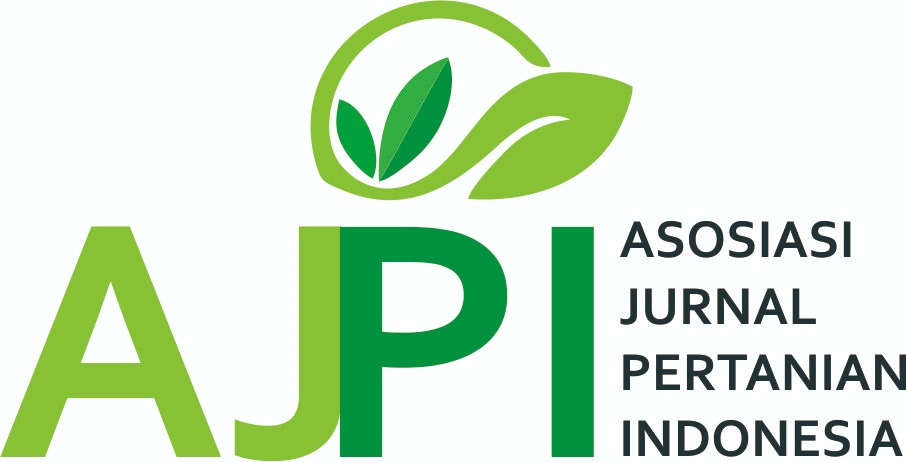Pengaruh Kadar Air Tanah dan Jumlah Tanaman Inang Berbeda terhadap Perbanyakan Spora FMA dan Pertumbuhan Tanaman Jagung
DOI:
https://doi.org/10.33005/plumula.v12i2.228Keywords:
Corn, Mycorrhiza, Number of Host Plants, Soil Moisture ContentAbstract
Tanaman jagung merupakan jenis tanaman yang paling umum digunakan sebagai inang (host) dalam perbanyakan spora mikoriza. Penelitian ini bertujuan untuk mengetahui metode perbanyakan Fungi Mikoriza Arbuskula (FMA) dengan kadar air tanah dan jumlah tanaman inang dan pengaruhnya terhadap pertumbuhan tanaman jagung. Rancangan percobaan yang digunakan, yaitu RAK 2 faktor. Faktor pertama kadar air tanah terdiri atas 4 taraf yaitu K1 (100% kapasitas lapang), K2 (75% kapasitas lapang), K3 (50% kapasitas lapang) dan K4 (25% kapasitas lapang). Faktor kedua jumlah tanaman inang per pot terdiri atas 3 taraf, yaitu J1 (1 tanaman per pot), J2 (2 tanaman per pot), dan J3 (3 tanaman per pot). Hasil penelitian menunjukkan bahwa interaksi perlakuan kadar air 25% dan jumlah tanaman tiga per pot (K4J3) menghasilkan 372.275 spora per pot. Pada pertumbuhan tanaman jagung, faktor tunggal kadar air tanah K3 menghasilkan berat kering total tertinggi, yaitu 3.065 g, dan faktor tunggal jumlah tanaman inang per pot J3 menghasilkan berat kering total tertinggi, yaitu 6.445 g.
Downloads
Downloads
Published
How to Cite
Issue
Section
License
Copyright (c) 2024 Maria Berlian Fau, I Nyoman Rai, I Wayan Wiraatmaja, Ni Nyoman Ari Mayadewi

This work is licensed under a Creative Commons Attribution 4.0 International License.
Authors who publish with this journal agree to the following terms:
- Authors retain copyright and grant the journal right of first publication with the work simultaneously licensed under a Creative Commons Attribution License that allows others to share the work with an acknowledgement of the work's authorship and initial publication in this journal.
- Authors are able to enter into separate, additional contractual arrangements for the non-exclusive distribution of the journal's published version of the work (e.g., post it to an institutional repository or publish it in a book), with an acknowledgement of its initial publication in this journal.
- Authors are permitted and encouraged to post their work online (e.g., in institutional repositories or on their website) prior to and during the submission process, as it can lead to productive exchanges, as well as earlier and greater citation of published work (See The Effect of Open Access).











